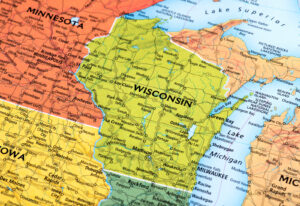Across practices, we are seeing the internet turn into an enemy for businesses dealing with federal law enforcement. Companies of all stripes need to be aware of the dangers of the Internet, and in particular what is being said about them online. If your products are subject to federal government scrutiny, you should be aware of internet dangers to your business.
1. Trial by Hashtag: The “Drug Paraphernalia” Example
Under the Controlled Substances Act (CSA), certain acts involving drug paraphernalia are prohibited, including their import and export. 21 U.S.C. § 863(a). The CSA’s definition of drug paraphernalia is expansive and highly subjective. This creates a fraught situation from a legal standpoint, as an imported product’s legality may hinge, not on its immutable characteristics, but rather on subjective factors.
Take a water pipe made in Jordan. If the importer is a company that sources Middle Eastern products, which also sells flavored tobacco, and which refers to its pipes as shisha or argileh on its website, the pipes will probably not face any issues on drug paraphernalia grounds. On the other hand, if the importer calls the product a water bong and makes allusions to cannabis on its advertising, there is a good chance the products will be seized as drug paraphernalia.
Brands in the cannabis space need to beware of the Internet, as it makes it much easier for the feds to find reasons to label the products as drug paraphernalia. And trust us when we say the feds will look everywhere.
Consider the Portibol case. The Portibol is a product described as “a highly engineered, patented design that enables users to mobilize the device for use outside the home for smoking tobacco and tobacco related products” (emphasis added). However, U.S. Customs and Border Protection (CBP) determined that the product was “primarily intended for use with cannabis” (emphasis added).
In reaching its determination, CBP relied on “Portibol’s online social media and YouTube presence,” which “does not indicate that a legitimate use for the subject water pipe exists within the community for which the Portibol is intended. Portibol’s social media presented “many photos of their product accompanied by marijuana culture-themed hashtags, thus showing that the Portibol is intended to be used with cannabis.” CBP noted Instagram posts with the hashtags #weed, #marijuana, #ganja, #cannabis, and #bong.
CBP has also relied on influencer videos in which they use a particular product in connection with cannabis, and even on Amazon reviews. These examples demonstrate not only the lengths CBP will go to in order to glean information about a product’s intended use, but also how the actions of unrelated third parties can get importers in trouble. Even if a brand does all it can to disassociate itself from cannabis, its consumers can create that association in the eyes of the government.
And in case you are wondering, the fact that some cannabis products are not controlled substances (i.e., hemp) is not enough to neutralize the negative impact of a product’s connections to cannabis generally.
2. The Dangers of the Internet for CBD Brands
Another group of brands that face dangers on the Internet and the problems it can create are those who market CBD products. While CBD is not a controlled substance, the Federal Food, Drug and Cosmetic Act (FD&C Act) prohibits the introduction of certain CBD products into interstate commerce. As happens with drug paraphernalia, whether a product falls into those “certain CBD products” sometimes hinges not on its characteristics, but on the way it is marketed.
The FD&C Act defines a “drug”” as “articles intended for use in the diagnosis, cure, mitigation, treatment, or prevention of disease in man.” 21 U.S.C. § 321(g)(B). New drugs cannot be introduced into interstate commerce without approval from the U.S. Food & Drug Administration. When determining a product’s intended use, the FDA will look to health-related claims made in connection with the product. Obviously, any claims made in the product’s labeling and packaging could fall under the agency’s scrutiny, but it will look much further than that.
Consider the 2019 warning letter issued by the FDA to Mr. Pink Collections, LLC (“Mr. Pink”) regarding its CBD products. In support of its determination that three CBD products offered by Mr. Pink were drugs as defined by the FD&C Act, the FDA cited Mr. Pink’s website, as well as its Facebook and Instagram pages. The FDA even cited captions on a YouTube video.
3. Internet Pitfalls for Importers
It is not only cannabis brands that need to beware of the Internet. When tackling other priorities, federal lawmen and lawwomen will also turn to their computers to shed light on the issue at hand. Take for example inquiries into a product’s country of origin (COO), particularly to snuff out instances of illegal transshipment. Properly declaring the COO on entry forms is a legal requirement, as is properly marking the COO on the product. Beyond this, however, tariffs and duties can vary dramatically depending on the product’s COO. And trust us when we say dramatic: The same exact product can go from zero duty liability to one that is two or three times its value, if the COO changes.
Of course, the COO of a finished product does not “change.” However, some importers will knowingly declare the wrong COO. Others may be duped by unscrupulous suppliers. Knowing that their product is subject to steep tariffs and duties, a manufacturer in, say, China might falsely claim that they have a facility in a different country, such as Vietnam. To facilitate its deception, the Chinese manufacturer might form a shell company in Vietnam, get Vietnam phone numbers for its key staff, and provide false locations on its website. In most cases, however, basic due diligence using common Internet tools will, if not reveal the truth, cast serious doubt on the manufacturer’s claims.
If the supposed manufacturing location is on a second floor above a coffeeshop, that will be a red flag. Another red flag would be presented by a discrepancy between the formation date of the Vietnamese subsidiary and the alleged start of manufacturing operations in Vietnam. Just as a buyer conducting due diligence on a potential supplier can make these discoveries, CBP can, and often will, go through the same exercises. The agency’s inquiries will not be limited to the paperwork and the imported product.
4. Takeaway: The Internet Is Full of Dangers
In conclusion, brands whose products are subject to scrutiny by the federal government should be mindful of the problems their online presence can create. By definition, any importer is subject to such scrutiny. And as a practical matter, most cannabis brands are also on the feds’ radar, for a variety of reasons. While ultimately brands may not be in complete control of their online presence, they should at a minimum ensure that their own messaging is consistent with their business and legal objectives.























